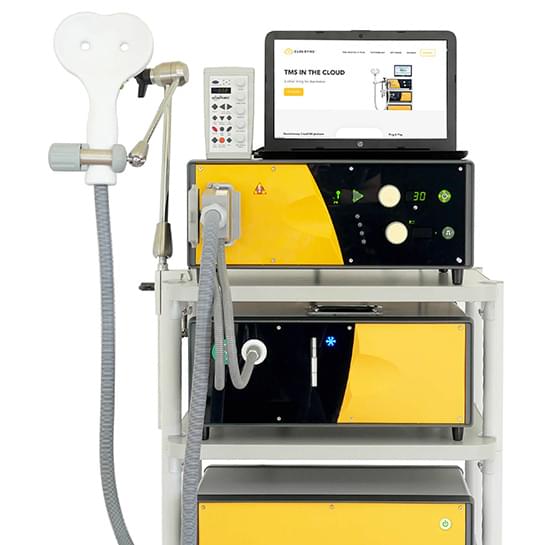Transcranial Magnetic Stimulation (TMS)

TMS is a great option for those who are struggling with depression and not getting full relief from medication and therapy. TMS is virtually side-effect free, making it an effective alternative for individuals who cannot tolerate typical medication side effects.

FAQ
TMS therapy is new and novel type of brain stimulation that treats depression using brief electromagnetic pulses (significantly weaker than those used in an MRI machine). These pulses pass through the skull easily and stimulate neurons in underactive regions of the brain thought to be responsible for depression. First approved in 2008 it is an effective form of treatment against drug resistant depression.
Close to 70% of patients receiving TMS therapy will feel some benefit and relief in depression symptoms - half of those patients will be in full remission after treatment.
No. But it might be mildly to moderately uncomfortable for the first few sessions as the patient gets used to it. It depends on the in- dividual. In the great majority of patients TMS is a well tolerated and very safe procedure. Most people describe TMS as a mild tapping sensation where the stimulator coil is being applied.
TMS therapy is applied by a TMS device with a stimulating coil. The patient sits reclined in a comfortable chair while the technician takes some measurements of the patient’s head. Once appropriate measurements have been made to determine optimal location of the coil placement, the technician then places the stimulating coil on the patient’s head and starts treatment. This treatment typically lasts from 20-30 minutes. This is conducted over a 4-8 week time frame of daily sessions. After each session the patient can drive home or back to work unassisted and can immediately resume normal daily activities.
Most patients report increased energy, focus, and motivation to perform activities and hobbies in as little as 5-10 sessions. Many patients describe TMS therapy as life chang- ing. Often times family members will notice effects before the patient does. As functional MRI imaging has clearly demonstrated, TMS increases blood flow to the area of the brain being stimulated, and if done repetitively also increases gray matter density.
Most patients report feeling positive benefits of TMS therapy even some years after their initial treatment. In most cases effects can be felt up to a year. If needed, maintenance TMS therapy sessions can be done.
In general TMS treatment is covered by most major insurance plans after the patient has failed several rounds of antidepressant medication. Ask your TMS provider for more details.
